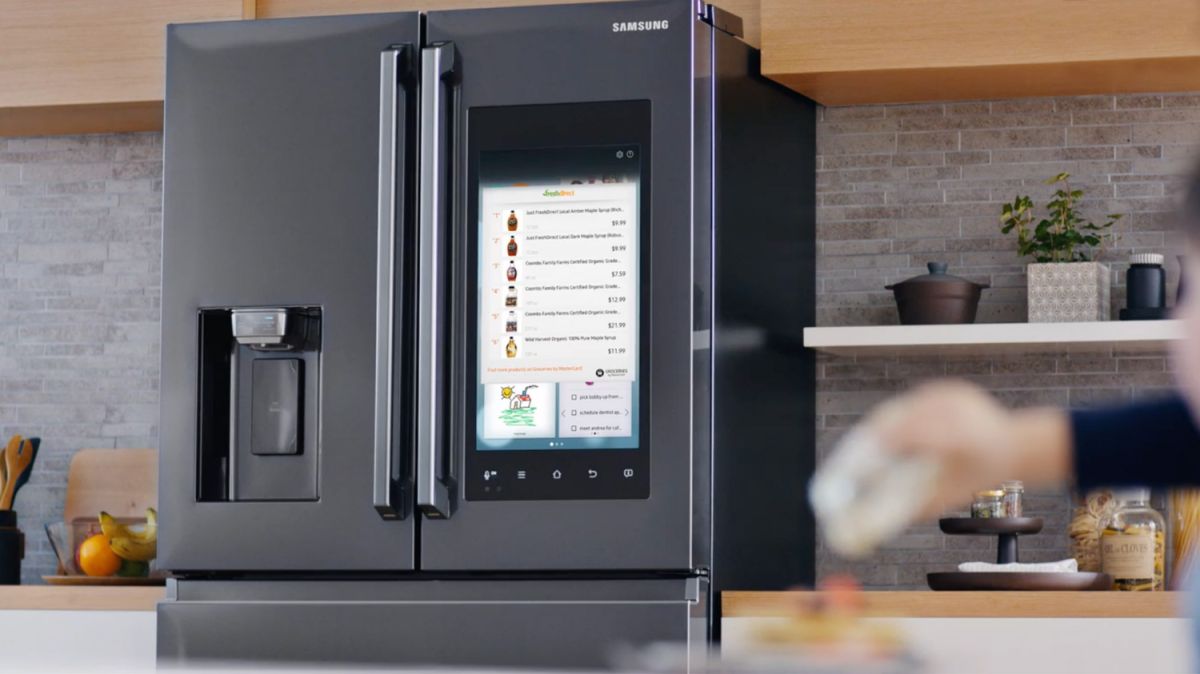As technology continues to advance, so do our home appliances. Smart freezers are the newest addition to the list of innovative appliances. These freezers are designed to offer convenience, energy efficiency, and enhanced food preservation capabilities. In this essay, we will explore the benefits of smart freezers and how they are transforming the future of food preservation.

-
Remote Monitoring and Control:
Smart freezers come with built-in Wi-Fi connectivity, allowing you to monitor and control your freezer from anywhere using your smartphone. This feature provides peace of mind, as you can check the temperature and status of your freezer, receive alerts if there are any issues, and even adjust the temperature remotely. This feature is especially useful if you’re away from home for an extended period, ensuring that your frozen food remains at a consistent temperature.
-
Enhanced Food Preservation Capabilities:
Smart freezers use advanced technology to preserve food better than traditional freezers. Some models feature sensors that detect temperature changes and adjust the temperature accordingly, ensuring that the temperature remains constant. This helps to prevent freezer burn and extends the shelf life of frozen food.
-
Energy Efficiency:
Energy efficiency is an important consideration when purchasing appliances, and smart freezers are designed with this in mind. These freezers use less energy than traditional freezers and often come with an Energy Star rating, indicating that they meet strict energy efficiency standards. Smart freezers may also have additional features, such as improved insulation and efficient compressor systems, which contribute to energy savings.
-
Improved Organization and Convenience:
Smart freezers often come with enhanced organizational features to make it easier to see and access the items stored inside. Some models have adjustable shelves, storage drawers, and door bins to provide customizable storage solutions. LED lighting is also a common feature in smart freezers, making it easier to see the contents of the freezer, even in low light conditions. This feature is especially useful when searching for a specific item without having to dig through a cluttered freezer.
-
Voice Control:
Many smart freezers can be controlled using voice commands through virtual assistants like Amazon’s Alexa or Google Assistant. This feature allows you to adjust the temperature, check the status of your freezer, and even add items to your shopping list without having to physically interact with the freezer.
-
Advanced Security Features:
Smart freezers often come with advanced security features such as fingerprint recognition or facial recognition technology, ensuring that only authorized users can access the freezer. This feature is especially useful for families with young children, preventing them from accidentally opening the freezer or accessing items that are not meant for them.
-
Integration with Smart Home Systems:
Smart freezers can be integrated into existing smart home systems, allowing you to control all your appliances from a single app. This feature provides convenience and allows for seamless control of all your smart appliances from one central location.
-
Data Collection and Analysis:
Smart freezers can collect data on temperature, energy usage, and other metrics, allowing you to analyze and optimize the efficiency of your freezer. This feature can help identify potential issues before they become problems, allowing for timely repairs and minimizing food waste.
In conclusion, smart freezers are the future of food preservation. They offer advanced technology, improved food preservation capabilities, enhanced organizational features, energy efficiency, and improved convenience. With features such as remote monitoring and control, voice control, and integration with smart home systems, smart freezers make it easier than ever to ensure your frozen food remains fresh and easily accessible. Consider the benefits of smart freezers and how they can transform food preservation in your home, making it easier and more efficient to store and preserve food for extended periods.